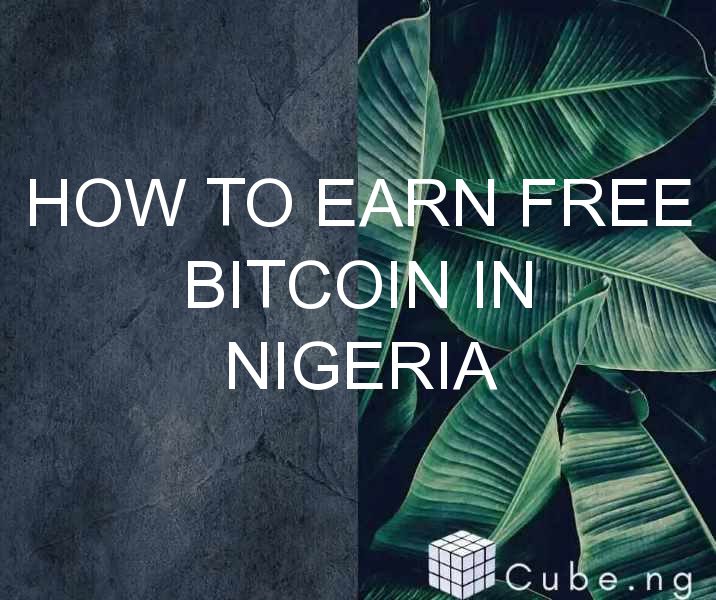Table of Contents
How to Earn Free Bitcoin in Nigeria
If you're living in Nigeria and want to earn free bitcoin, you're in the right place. Bitcoin is a digital currency that has become increasingly popular in recent years, and it's easy to see why. Not only is it decentralized, meaning it's not controlled by any government or financial institution, but it also offers fast, secure, and anonymous transactions. In this article, we'll discuss different ways you can earn free bitcoin in Nigeria.
What is Bitcoin?
Before we dive into how to earn free bitcoin, it's essential to understand what bitcoin is. Bitcoin is a digital currency that was created in 2009 by an unknown person using the name Satoshi Nakamoto. Transactions are made without intermediaries, meaning no banks or other institutions are involved. Bitcoin can be used to purchase goods and services, and it can also be exchanged for other currencies, products, and services.
How to Earn Free Bitcoin in Nigeria
- Bitcoin faucets
Bitcoin faucets are websites or apps that reward users with small amounts of bitcoin for completing simple tasks such as captcha solving, watching ads or videos, or playing games. While the rewards are small, they can add up over time. Some popular bitcoin faucets in Nigeria include FreeBitco.in, Cointiply, and Moon Bitcoin.
- Airdrops
Airdrops are giveaways of free cryptocurrency tokens or coins. Companies and projects often use airdrops as a marketing strategy to get their tokens into the hands of potential users. To participate in an airdrop, you'll typically need to follow the project on social media, complete a survey, or refer friends. Some popular bitcoin airdrops in Nigeria include Stellar, Ontology, and BitTorrent.
- Freelancing
Freelancing is a great way to earn bitcoin. If you have a skill such as writing, programming, or graphic design, you can offer your services on platforms that accept bitcoin as payment such as Upwork or Fiverr. You can also offer your services directly to clients and accept bitcoin as payment.
- Bitcoin mining
Bitcoin mining involves using powerful computers to solve complex mathematical problems and verify bitcoin transactions on the blockchain. In exchange for their work, miners are rewarded with bitcoin. While mining can be profitable, it requires significant upfront investment in hardware and electricity costs.
- Trading
Bitcoin trading involves buying and selling bitcoin for profit. You can buy bitcoin on exchanges such as Coinbase or Binance, hold it until the price increases, and then sell it for a profit. However, trading can be risky, and it's essential to do your research and only invest what you can afford to lose.
Conclusion
Earning free bitcoin in Nigeria is possible, but it requires effort and dedication. Whether you choose to participate in bitcoin faucets, airdrops, freelancing, mining, or trading, always be cautious and do your research. Never invest more than you can afford to lose, and always keep your private keys safe.
FAQs
- Is it legal to earn bitcoin in Nigeria?
Yes, it's legal to earn bitcoin in Nigeria. However, the regulatory landscape surrounding cryptocurrencies in Nigeria is still evolving.
- Do I need a lot of money to start earning bitcoin?
No, you don't need a lot of money to start earning bitcoin. Some methods such as bitcoin faucets and airdrops require no investment at all.
- How do I keep my bitcoin safe?
To keep your bitcoin safe, store it in a secure wallet and never share your private keys with anyone.
- Can I earn bitcoin without doing any work?
While it's possible to receive bitcoin as gifts, airdrops, or giveaways, earning significant amounts of bitcoin typically requires effort and dedication.
- How can I learn more about bitcoin?
There are many resources available online to learn more about bitcoin, including blogs, forums, and podcasts. Some popular resources include Bitcoin.org, CoinDesk, and The Pomp Podcast.




